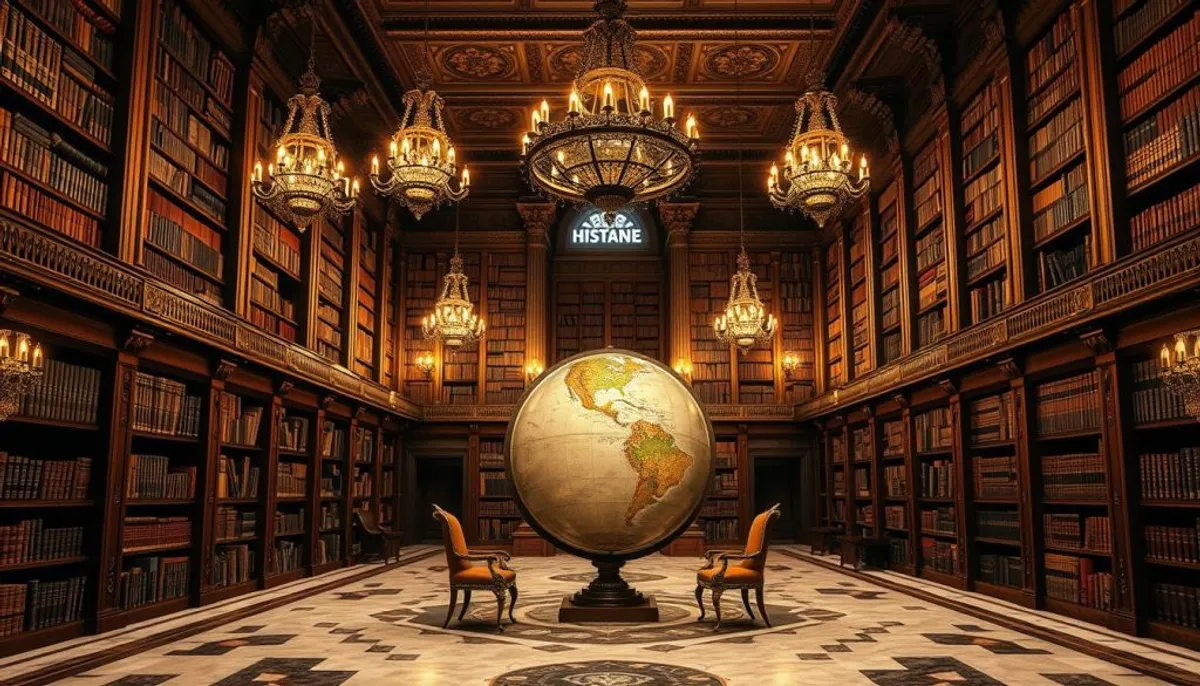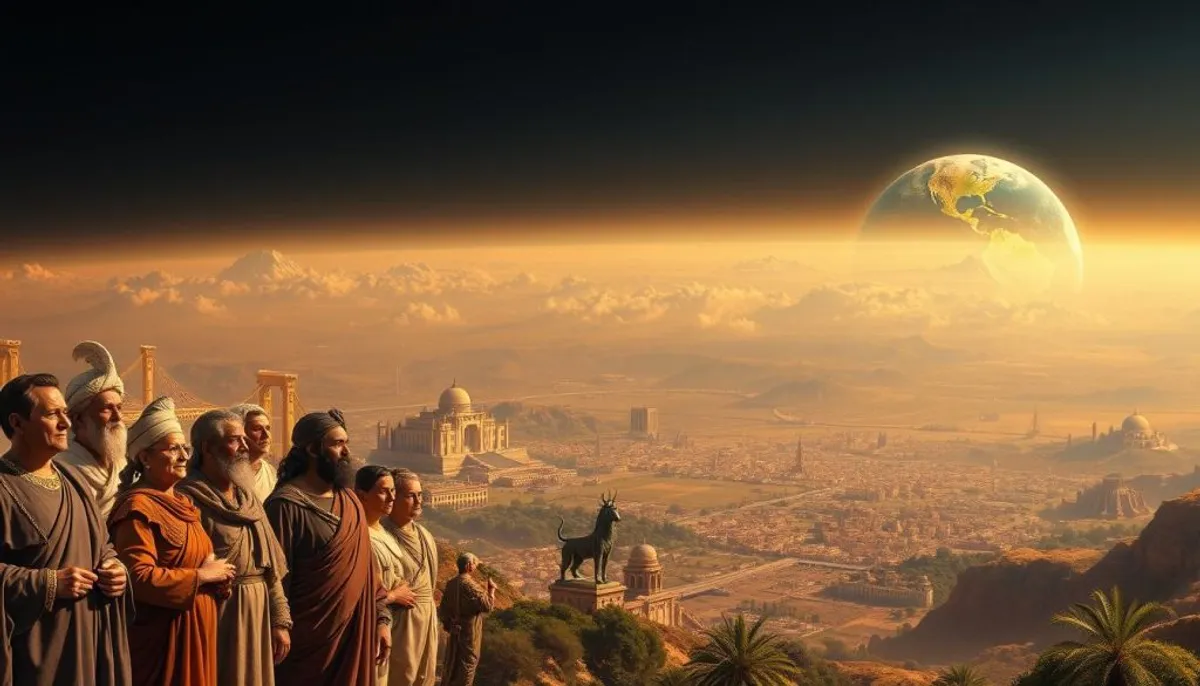General knowledge is crucial for excelling in society and succeeding in studies. It covers a wide spectrum of knowledge about our environment, including musical development. But what are the key pieces of knowledge to acquire?
History and geography form the foundation of this culture. The Nile, with its impressive length of 6,853 km, flows through 11 countries. The Great Wall of China, on the other hand, stretches over 8,000 km. These figures highlight the importance of these disciplines.

Arts, sciences, and literature, among others, complete this knowledge. For example, “Avengers: Endgame” generated over $2.7 billion, becoming the highest-grossing film. This information can enrich your everyday conversations.
General knowledge is essential, whether for succeeding in an entrance exam for a prestigious school or for broadening one’s knowledge. In the following sections, we will detail these key subjects to help you build a solid knowledge base.
What are the essential general knowledge subjects
General knowledge covers a spectrum of crucial knowledge. It is fundamental for our understanding of the world and our interaction with it. Let’s look at the key areas that form the basis of a rich general knowledge.
The fundamental areas to master
History, geography, arts, literature, sciences, and current events are the pillars of general knowledge. These areas provide a global perspective on our society and its evolution. For example, knowing the major historical periods allows us to grasp current geopolitical issues. Similarly, understanding major artistic movements enriches our appreciation of art in our culture.

The importance of a diverse general knowledge
A varied general knowledge is an invaluable asset. It fosters critical thinking and creates connections between different disciplines. This diversity is particularly beneficial in job interviews and intercultural discussions. It also enhances communication between cultures.
The key skills sought
A solid general knowledge develops essential skills. Mastering history and geography allows for an understanding of global issues. Knowledge in arts and literature enriches our sensitivity and expression. Understanding sciences sharpens our logic. These skills are highly valued in careers such as journalism, diplomacy, or teaching.
General knowledge is crucial for succeeding in many competitive exams. It often represents a significant portion of the final score. The topics covered are varied: from the history of France to literature and art, including key statistics. Mastering this knowledge is vital for excelling in these tests.
The arts and literature as cultural pillars
The arts and literature are essential foundations of our culture. They reflect our traditions, our history, and our values. Studying these areas helps us better understand our society and our own identity.
The major artistic movements to know
The evolution of art over the centuries has given rise to distinct movements. From the Renaissance to contemporary street art, each period leaves its mark. For example, Impressionism transformed painting in the 19th century. Surrealism, on the other hand, delved into the unconscious in the early 20th century.
The fundamental literary works
Literature constitutes a central pillar of our culture. Classics offer us new perspectives on life and society. Victor Hugo, Émile Zola, and Albert Camus, for example, shaped French literature. Their influence endures, enriching our vocabulary and sharpening our critical thinking. Khmer art, with its unique traditions, also adds an important dimension to our understanding of the arts.
The history of art and its influence
The history of art reveals how artists have reflected the ideas of their time. Art has often served as a mirror to social and political changes. Today, contemporary art explores new expressions, such as digital art. It influences fashion, design, and even advertising.
A recent study reveals that 85% of academics believe it is crucial to know art to understand literature. Moreover, 80% of students participating in artistic workshops report an improvement in their academic engagement. These data highlight the importance of arts and literature in education and general knowledge.
World history and geography
History and geography are crucial foundations of our culture. They allow us to grasp the surrounding world and understand current events. These disciplines, full of mysteries, shape our worldview.
The major historical events
History is dotted with decisive moments that have redefined our reality. The American Revolution and the French Revolution, two events from 1765 to 1783 and 1789 to 1799, revolutionized political systems. These revolutions ushered in a new era, challenging old traditions and introducing new forms of government.

Contemporary geopolitics
Geography is essential for understanding today’s global challenges. China, with its population of 1.4 billion people, exerts considerable influence on the international stage. This geographical reality impacts international relations and global economic dynamics.
Ancient civilizations and their legacy
Ancient civilizations continue to have an impact on our world. Egypt, the oldest country in the world, with a history dating back to 3100 BC, has left a profound cultural and architectural legacy. The pyramids, symbols of this distant era, still captivate today, highlighting the importance of preserving our historical heritage.
By exploring history and geography, we deepen our understanding of the roots and forces that shape our present. This knowledge enriches our culture and helps us interpret current events and geopolitical trends.
Sciences and philosophy in general knowledge
General knowledge encompasses sciences and philosophy, two essential areas for understanding our world. These disciplines shape our thinking and influence current events.
The major scientific discoveries
Scientific advancements have transformed our understanding of the universe. Marie Curie, a pioneer in radioactivity, won two Nobel Prizes. Her work revolutionized physics and chemistry. The theories of Einstein and Darwin continue to influence modern sciences.
The major philosophical currents
Philosophy nurtures our reflection on existence. Auguste Comte identified three stages of knowledge: theological, metaphysical, and scientific. Bertrand Russell emphasized the importance of scientific thinking in modern culture. Karl Popper introduced the concept of falsifiability to distinguish science from non-science.
The impact of technological advancements
Technologies are transforming our daily lives. The first call from a mobile phone took place in 1973 in New York. Since then, digital innovations have disrupted our traditions and ways of living. Cameroonian craftsmanship, in particular, illustrates how general knowledge must integrate these changes to understand current issues.
| Field | Contribution to general knowledge |
|---|---|
| Sciences | Understanding the physical world |
| Philosophy | Reflection on existence and ethics |
| Technology | Adaptation to social changes |
Modern general knowledge must combine sciences, philosophy, marriage customs, and an understanding of new technologies. This multidisciplinary approach allows for a better grasp of contemporary challenges and active participation in societal debates.
Conclusion
The subjects of general knowledge cover a vast spectrum of knowledge. They encompass history, geography, arts, literature, sciences, current events, philosophy, languages, and traditions. Mastering these areas is crucial for understanding our complex world and actively contributing to it.
General knowledge is built over a lifetime. It requires an insatiable curiosity and continuous learning. To expand it, diversify your readings, visit museums, and participate in conferences. Stay informed about current events and interact with individuals from diverse backgrounds. Cultivating a good general knowledge opens up new perspectives and enriches our social interactions.
It is important to remember that the quality of an essay relies on the clarity of ideas and the breadth of knowledge. Statistics indicate that 50% of the time should be devoted to reflection. A clear introduction, 2 to 4 well-defined issues, and a concise conclusion are crucial. By developing your knowledge, you will be better prepared to face the challenges of the modern world and participate in societal debates.
RelatedRelated articles


